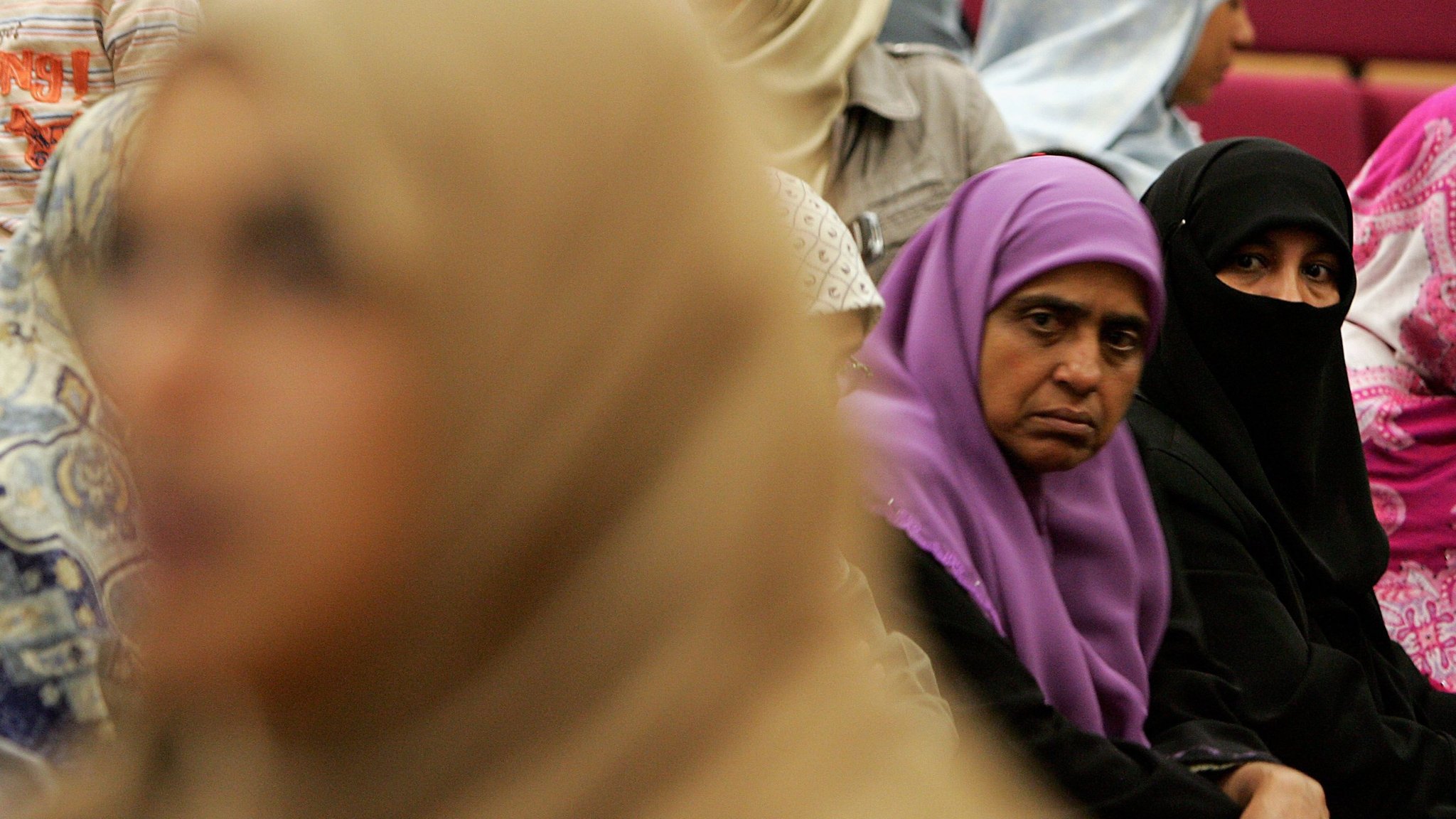The Casey Review: Integration of UK immigrants is a two-way process

A Muslim woman wearing a niqab veil listens during a seminar organised by the women’s chapter of Hizb-ut-Tahrir Britain, to challenge the remarks made by Jack Straw and other British ministers against the veil on October 14, 2006 in London, England.
written for The Financial Times, 9 December 2016
In January this year, the then British prime minister, David Cameron, unveiled a fund for teaching English to immigrants, targeted at Muslim women. The left erupted. Tim Farron, Liberal Democrat leader, called it “dog-whistle politics at its best”. The Guardian seethed in a leader column under the headline: “it’s finger-wagging bad”.
Critics pointed out that the government had recently cut up to £45m in funding used to teach immigrants enrolled in English for Speakers of Other Languages (Esol) programmes.
A subsection of Britain’s Muslim women, meanwhile, took to Twitter to protest alleged comments by Cameron, published in The Telegraph, that Muslim mothers were unable to sway sons against terrorism because of their “traditional submissiveness”. Amid the selfies of hijabi women in surgical gear or doctoral robes under the hashtag #traditionallysubmissive, purported Tory inconsistency on gender equality was mocked. The right, or so the left perceived, were happy to care about women’s emancipation only when framed within a larger cultural goal.
This week, Dame Louise Casey announced the findings of her review into opportunity and integration, a project announced during that rush of headlines at the beginning of 2016. The review found that successive governments have “ignored or even condoned” regressive religious and cultural practices because they fear being labelled racist.
Its recommendations include asking immigrants to take an “immigration oath” on arrival in the UK, instead of sitting a discredited citizenship test.
Most controversially, Dame Louise reiterated Cameron’s finding — bitterly disputed by the Muslim Council of Britain — that around one in five Muslim women are not able to speak English “well or at all”.
This time it was the right’s turn to crow. The Daily Mail splashed on the headline: “Swear Oath to Live in Britain”, a provocative spin on Dame Louise’s less prescriptive suggestion.
On Twitter, the left rose to the Daily Mail’s bait, with some lambasting the review as pandering to the agenda of the far-right. In fact, Dame Louise’s review is a studied model of muscular liberalism. Class is not, as some of its critics claimed, ignored. The Casey review considers the lack of educational achievement among poor minorities in the light of similarly poor outcomes for the white working class. White racism is highlighted as a factor in non-white isolation. Metrics of integration are assessed for a range of minority communities: 13 per cent of Hindu women, it concludes, do not speak English well.
The left seems unlikely to pull its head out of the sand on the issues covered by the Casey report. To accept, for example, that marriage patterns within some poor Muslim communities are unsustainable — that illiterate brides imported from Pakistan are unlikely to be independent or integrate well — will require it to jettison its commitment to viewing British Muslims as a monolithic victim class.
Yet the self-congratulation of the rightwing Cassandras has been wilfully counterproductive. Promoting the work of Dame Louise and her peers simply as a Trojan horse for racist and inflammatory headlines can only serve to undermine the review’s important messages.
It is not just Britain’s immigrants, but its newspapers, who could use a few courses on mutual engagement. They might even learn to speak a common language.
• Loyalty oaths, in fact, have a dismal history in Britain. Henry VIII had a go with the Oath of Supremacy and it resulted in the martyrdom of Thomas More, which did little good to anyone.
Ritual, on the other hand, has its place. Years ago, my grandfather was hurt to discover that his certificate of naturalisation came in the post; his proud commitment to Britain seemed diminished. Citizenship ceremonies can be uplifting. But they must be ceremonies of inclusion, not tests against exclusion.
Meanwhile it is hard to find a politician, on left or right, who does not respond to questions about immigration by harping on “shared values”. In fact, quantification of English values is a deeply Whiggish concept. If there is a shared British ideal, it is perhaps a commitment to leaving true loyalties unspoken and unexamined.
As the 19th century journalist and essayist Walter Bagehot wrote of the intangibility of constitutional monarchy: “We must not let in daylight upon the magic.” The same might be said of Englishness itself.






